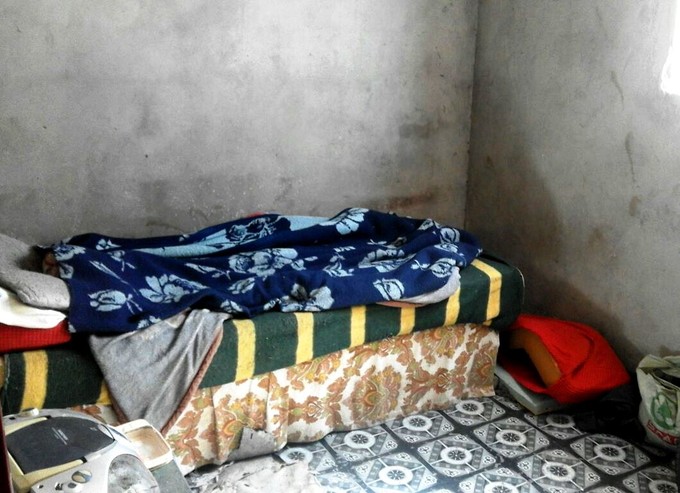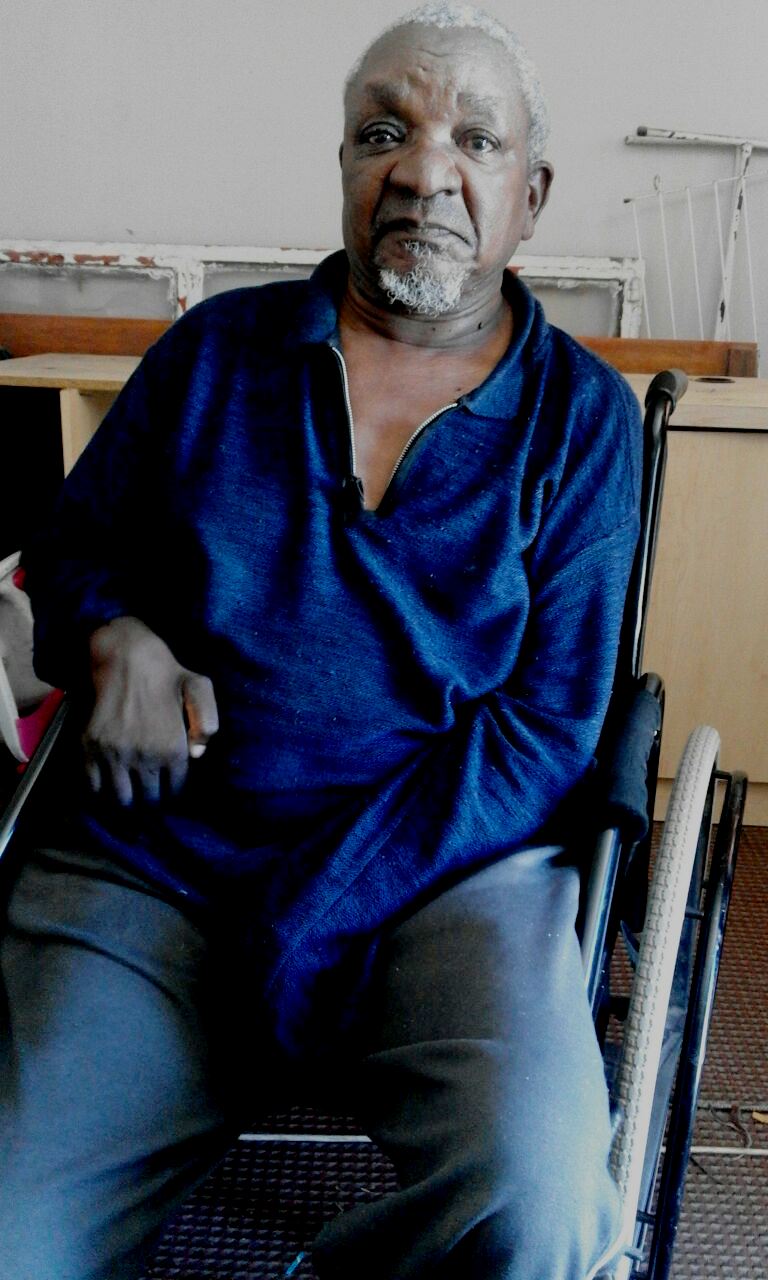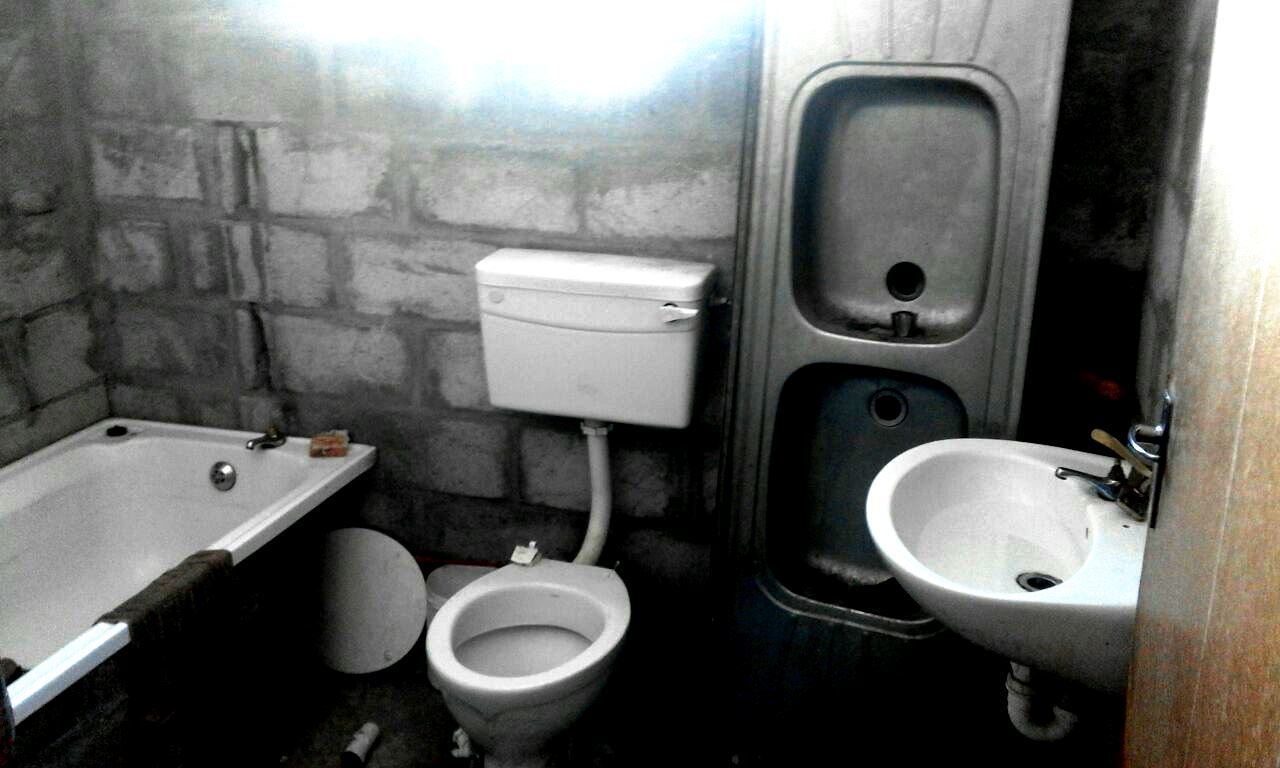
The bedroom which Walawa Falakhe has plastered at his own expense. Photo: Thembela Ntongana
16 May 2016
“I can’t even use the toilet in my own house,” says 57-year-old Walawa Falakhe, a resident of Khayelitsha.
Falakhe sits in his wheelchair in his front doorway watching people passing by. A man stops to talk for a bit. When he leaves, Falakhe waits for someone else to come along for a chat. This is how he spends his days, except when he goes to collect his pension or goes to the hospital for a check-up.
In 2001, a stroke left Falakhe wheelchair dependent. Unable to cope on his own in the shack he was living in, he asked a nephew to come and live with him.
He joined the Senzeni Community Forum which helps people get RDP houses. His RDP house was finally built in 2009.
“I was excited because it was difficult to move around in a shack with the wheelchair, and I thought a house would make that easier. But it is even worse. I cannot move around in my own house. I am a prisoner,” says Falakhe.
He says sometimes his wheelchair gets stuck and he has great difficulty dislodging it as he only has one functioning hand.
He cannot use the toilet without help, he says.
He scraped together some money together to build a stoep, but the work was badly done and he needs help getting onto the stoep.

“My nephew is not always here. I just want to be able to use my toilet without asking people for help. I want to feel I am in my house just like normal people,” says Falakhe.
When he received the house it was without plaster or electricity. The walls have already started to crack.
He has since plastered his bedroom to help with the cold. Electricity has also been improvised.
The house is sparsely furnished with a single bed and a small table, and in the living room one wooden chair and some old building material from his shack. He says he would like to buy himself a comfortable bed, but his money is going on fixing the house.
“I thought when they use your subsidy they are suppose to finish the house. But they did not. I had to save money from my pension to do some of the things … It would be better if they had at least made it wheelchair friendly for me.”
His neighbour, Nokuthula Mbeje, says she worries about Falakhe, because not everyone is willing to help.
“I help him a lot because I have known him since I was a child, but not everyone wants to help, and sometimes, he just wants to use the bathroom. He calls on anyone he can find on the streets, some he does not even know,” says Mbeje.
Mandibakho Mbikanye from the Senzeni Community Forum says many of the houses, including his own, were not properly built. Falakhe’s case was reported to the Department of Human Settlements.
“An inspector from human settlements cannot sign that a house is done when it is not done,” says Mbikanye.
After GroundUp contacted the department, they sent officials to assess the house.
“They came and took pictures of the house. I can only hope that they will do something to help me,” says Falakhe.
Zalisile Mbali, spokesperson for Minister of Human Settlements Bonginkosi Madikizela says Falakhe’s subsidy included a disability grant of about R5,000 which is given to disabled RDP housing beneficiaries to accommodate their individual needs.
The grant had since gone up to R6,545, but Mbali said this was still ” far too little” to assist a wheelchair bound person. “At this stage it is not clear whether this was a fault from the contractor that was building this houses or not. The department is exploring how this matter can be dealt with,” Mbali stated.
